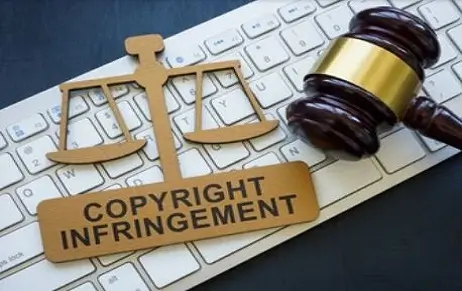“Bad Artists Steal, Good Artists Copy” This famous quote from Pablo Picasso defines what creativity…
Digital Piracy and Copyright Infringement
Introduction
In the contemporary digital environment, the problem of piracy has become one of the most urgent, mainly due to the fact that the availability of information in the digital environment makes it possible to use copyrighted works without proper permission. This phenomenon does not only hinder the economic rights of the creators and producers but also creates great difficulty in enforcing the copyrights. More people use streaming services and share content through the internet, cyber piracy becomes more professional, including large networks of criminal websites that are involved in sharing the copyright content such as movies, music and more.
One such case that then places a legal perspective on digital piracy is Star India Pvt. Ltd. v. Moviestrunk. Com. In this leading case, Star India Pvt. Ltd., the leading film production and distribution company accused 67 websites of pirating and streaming the company’s film “Mission Mangal.” The case was launched under the Section 14 and 51 of Copyright Act, 1957, which outlines the rights of the copyright owner regarding their works.
The subject matter of the case is as follows: the meaning of ‘rogue websites’, referring to websites primarily involved in providing access to copyright-infringing goods and services. The decision of Delhi High Court went much beyond the dispute of Star India and in fact brought the new trends that would possibly be adopted by the courts in the future. From the court’s ruling of these websites as rogue entities, they underscored the need to enhance mechanisms to safeguard IPRs in a world where a lot of criminal activities are being nursed through the internet.
Case Background
Overview of Star India Pvt. Ltd.
Presently, Star India Pvt. Limited owns the television rights of IPL along with Fox Star Studio having distribution and production of films in Indian region. The company has buying rights for many films and some of the license excepted films are cinematograph film “Mission Mangal”, which was scheduled to release on August 15, 2019, in more than 2,500 screen across India. Star India and defendant no. 68 – Cape of Good Films LLP have some sort of shared rights for representation of movie “Mission Mangal” through intellectual property rights under the Copyright Act of 1957.
Defendants Involved
Star India Pvt. Ltd. filed a suit against 67 named defendant websites (defendant nos. 1 to 67) those believed to be involved in the venture of distributing third-party materials and information over the internet. These websites were accused of playing host to the sharing, streaming and broadcasting of ‘Mission Mangal’ to the public for free while not having a licence to do so.
The applicant also joined defendant no 69 as the registrar of the defendant website nos. 1 to 7 & defendant no. 70 to 78 as ISPs who sought their help to block the concerned website. Also, defendant nos. 79 and 80 were the departments of the Government of India that issue notifications about blocking of the alleged website.
The term “rogue websites” must be understood as such Web sites that are mainly involved in the activities covered by the WIPO Copyright Treaty, which consist in the reproduction, publication, and communication to the public of works and other protected subject-matters through the Internet. The identification of these websites is fairly challenging because of their anonymous concept.
Key Issues
Infringement Claims
The case of Star India Pvt. Ltd. v. Moviestrunkenk Superintendent of Post Offices, Bhopal v. PL_variance com, the plaintiff, Star India to have provided the defendant websites streaming the film and making it downloadable without the plaintiff’s consent in violation of sections 14 and 51 of the Copyright Act of 1957. In this regard, the plaintiff stated that this unauthorized activity not only infringed his/her copyright but also affected negatively his/her business, including in aspects of revenue and market share. The ease with which the film could reach many people through such sites was the greatest threat to the overall success of the film especially bearing in mind how keen the movie industry is especially with regards to the returns on the box office.

Defendant’s Response
The defendants, namely, 67 websites, did not answer the accusations as well as did not take part in the process of the lawsuit. This lack of engagement was particularly stand out, particularly considering the fact that the plaintiff was sending notices to the defendant demanding that the defendant cease and desist from posting the content in question. Since there was no defence, the court considered the case a non-Contest case. In such circumstances, the rules of law courts indicate that the plaintiff does not need to necessarily present any kind of supercopious evidence other than the claims contained in the statement of complaint. Therefore, based on the gob, without rejecting the merits of the plaintiff’s assertions, the court can proceed and rule according to any documents presented.
Judgement
Findings of the Court
The Delhi High Court passed the order in favour of the plaintiff Star India Pvt. Ltd with the effect that the defendant websites were indeed “rogue websites” whose business mainly and solely consisted of distribution of infringing copies of copyright matters by means of internet. The court also noted that the uncertainty of the registrant’s status, combined with the activity of the websites, also rightfully classified the defendants as rogue websites.
The Honourable Court passed an order of injunction restraining the defendant websites from ‘unauthorizedly streaming, downloading, communicating or distributing the cinematograph film ‘Mission Mangal’, including any extracts or clippings thereof.The Honourable Court further directed IPTV providers and ISP to block the unlawful websites and the various government departments to issue notices to IPTV and ISP to block the said website.
Consequences of the Ruling
The judgment of the court is quite explosive for both the holders of the copyright and Motion Picture Industry worldwide notably the Indian industry. Thus, in supporting the defendants’ designation as a sui generis rogue website and future blocking injunctions, the judgment enhances the legal toolbox for tackling piracy online. This case provides a guideline into future copyright infringement trials showing the courts’ preparedness to act against sites that disrespect the copyright laws.
Altogether, this decision is not limited only to the parties on the case at hand but affects other people in different ways. It sensitizes the broader online community that the unlawful distribution of copyrighted materials shall not be condone and that the legal redress is accessible to content producers and distributors. This example demonstrates that despite the fact that digital piracy is gradually growing more complex, there is a critical necessity for effectively combating it and ensuring the protection of creative industries in the framework of constantly developing legal norms.
Broader Implications
Impact on Digital Piracy
The Star India Pvt. Ltd. v. Moviestrunk.com* case can have a strong impact on the further developments of the battle against digital piracy in India and other countries. This ruling shields copyright holders by outlining how the illegitimate websites should be located and dealt with legally. The case succinctly exposes the fact that it requires collective effort amongst the stakeholders such as producers of content, the Internet Service Providers, and the law enforcement agencies among others to fight piracy. Therefore, it becomes the responsibility of ISPs and platforms to ensure that copyright infringement does not take place as the penetration of digital material rises. They must have proper corresponding measures to filter the content and work with the rights’ holders to remove the content swiftly. The case shows that the crusade against cyber sleaziness is achievable only through the collective endeavors of several industries for safeguarding the creative industry.
Future of Copyright Law
The relevant legal rules in the field of copyright are indeed under a number of threats and pressures as technology advances and shifts in consumptions of digital products take place. More specifically, such innovations as streaming services, social networks, and peer-to-peer sharing have outdated the existing legal regulation most of the time. To mitigate these issues, there is a need to bring about change on aspects pertaining to copyright law in the modern technological world. Possible revisions could be the elaboration of specific digital rights, higher punitive measures for violation, and way of implementing them.
However, the legal structure must evolve based on the technological advancement that enforces piracy, including Artificial intelligence and machine learning. These technologies can be exploited to enhance the kinds of preventive and protective measures against piracy. It is necessary for the Indian government and legal bodies to pay much attention to the establishment of rigorous IP legislation and to elaborate supreme guidelines followed in other countries can be adopted in India to have a stronger anti-piracy system. Extension of IPR will benefit not only authors, but will promote creation in the sphere of artistic and creative industries and, consequently, the overall economy.
Conclusion
The Star India Pvt. Ltd. v. Moviestrunk.Com case can be considered one of the most significant cases in relation to the enforcement of copyright law in the information world. This landmark; judgment has happened in the Delhi High Court which can easily state the necessity of the protection of the intellectual property when the copy right infringement is going high due to digitalization. Thus, by labelling the defendant’s websites as ‘rogue,’ the court has laid down the approach possible for other similar cases, saying that the unlawful distribution and streaming of copyrighted materials is prohibited.
The injunctions granted by the court against the rogue websites and instructions given to the Internet service providers to block the problematic sites demonstrate that the legal systems’ measures are quite adequate to address the phenomena of digital piracy. This case not only supports the companies like Star India but also teaches the persons who wanted to infringe the copyright law that legal proceedings are available for the persons who has been hurt or deprived of their rights.
As the fight against digital piracy goes on one thing that has become very apparent is the need for sturdy legal protection of one’s intellectual property rights. The complexity of the Star India case also underlines how, for copyright law to effectively protect, one has to constantly tread on the path of reinvention to remain relevant to changed technological environment as well as the evolving consuming trends. It draws for the collective effort of players in the society, the content producers criminal justice system, as well as the Internet service providers to come up with a coherent and coherent strategy that would adequately capture issues regarding digital infringement.
All in all, it can be seen that the impact of this case does not stop at proving the breach of copyright but continues to highlight that the protection of intellectual property is still a very relevant issue in the Web environment. It is not only the shareholders together with the authors and creators that benefit from the ruling of the court but it also fosters fairness within the creative industries hence supporting the development of growth and sustainability of the nation’s economy.
Author: Rani Tiwari, in case of any queries please contact/write back to us via email to chhavi@khuranaandkhurana.com or at IIPRD.
References
- Pirates of entertainment content! Digital piracy leads to losses in revenue and viewership – Brand Wagon News | The Financial Express
- https://nopr.niscpr.res.in/bitstream/123456789/61786/1/JIPR-28%281%29%2021-31.pdf
- https://indiankanoon.org/docfragment/22120913/?formInput=film+++++doctypes%3A+delhi



